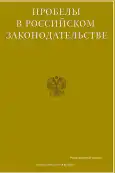Information War as Part of Geopolitical Conflict
- Authors: Karchaeva K.A.1
-
Affiliations:
- North Caucasus Institute for Advanced Studies (branch) of the Krasnodar University of the Ministry of Internal Affairs of Russia
- Issue: Vol 15, No 5 (2022)
- Pages: 157-161
- Section: Articles
- URL: https://bakhtiniada.ru/2072-3164/article/view/147610
- ID: 147610
Cite item
Abstract
Оne of the most valuable social resources in the modern world is information. The influence of information on the consciousness and behavior of people is very significant, because through information resources public opinion is formed on topical issues and problems. Together with the mass media, sustainable growth is acquiring the use of modern information technology tools and resources of the Internet. This speeds up and simplifies the process of dissemination and transmission of information, allows you to organize access to various information to an unlimited circle of people around the world. However, the large-scale development of the Internet brings new threats and challenges, creating conditions for the commission of crimes against individual citizens, organizations or states. The relevance of the chosen topic of scientific research is explained by the fact that in the context of the growing aggression of foreign countries, information resources and protection against “information attacks” are a priority for the state. Mass media cover political life, build public opinion and disseminate popular culture. In view of this, the term "information war" entered the scientific and international media circulation, replacing the term "propaganda" that preceded it. Almost all military-political events of the last decades of the 21st century are marked by the widespread use of means and methods of information confrontation, which poses a real threat to the existing model of the world, as well as to the moral and psychological climate in society. The purpose of the research work is to analyze the concept of "information war", as well as to develop proposals for leveling the threats posed by information wars in the context of modern legal realities. The author comes to the conclusion that the information war is part of an armed conflict, in view of this, the ability to navigate the features of modern crisis information and communication interaction, knowledge of the technology of conducting "information wars" will help us control our own information field and information resources of the enemy. This, in turn, will not allow foreign states to manipulate the consciousness and behavior of the civilian population and (or) military personnel with specially prepared information aimed at achieving economic, political, social and military goals.
Full Text
##article.viewOnOriginalSite##About the authors
Kamila Avarievna Karchaeva
North Caucasus Institute for Advanced Studies (branch) of the Krasnodar University of the Ministry of Internal Affairs of Russia
Email: kamila.karchayeva@mail.ru
Cand.Sci.(Econ.), Police Lieutenant, Lecturer, Department of Law Enforcement Nalchik, Russia
References
- Barabash V. V., Bordyugov G. A., Kotelenets E. A. State propaganda and information wars. Moscow: Association of Researchers of the Russian Society, 2015. 400 p.
- Grinyaev S. N. Views of US military experts on the conduct of information confrontation. // Foreign military review. No. 8, 2001.
- Kochoyan R.G. Counteraction to crimes committed on the Internet: improvement of the criminal legislation of the Russian Federation // Criminal realities, response to them and the law / edited by A.I. Debt. Moscow, 2018, pp. 127-131.
- Krynina O. Yu. Definitions of the concept "Information war": analysis of Russian and foreign experience // New technologies. 2009. №3.
- Lagutin M.S. Permanence of anti-Russian information wars. Reasons and methods (XVI-XIX centuries) // Modern problems of science and education. 2014. No. 6.
- Manoilo A.V., Petrenko A.I., Frolov D.B. State information policy in the conditions of information-psychological war // M.: RAGS, 2007. P. 524.
- Muratova Yu.D. The essence of the information war in the regional political conflict and the main forms of its manifestation // Communicology. 2018. Vol. 6. No. 1. pp. 34-45. doi: 10.21453/2311-3065-2018-6-1-34-45.
- Serebrennikova A.V. Crimes in the field of information technology: cyberbullying and cybermobbing // Problems of Economics and Legal Practice. 2020. No. 2. S. 283-287.
- Suleymanova Sh.S., Nazarova E.A., Information wars: history and modernity // Textbook. - M .: International Publishing Center "Ethnosocium", 2017. 124 p.
- Urban V.V. Crimes committed using information and telecommunication networks: general characteristics and criminal procedural measures to counter them // Bulletin of the East Siberian Institute of the Ministry of Internal Affairs of Russia. 2019. No. 1 (88). pp. 55-63.
- Frolov D. B., Information war: the evolution of forms, means and methods // Sociology of power. 2005. No. 5 P.121-146.
- Encyclopedia of the Ministry of Defense of the Russian Federation https://stat.mil.ru/index.htm.
Supplementary files








